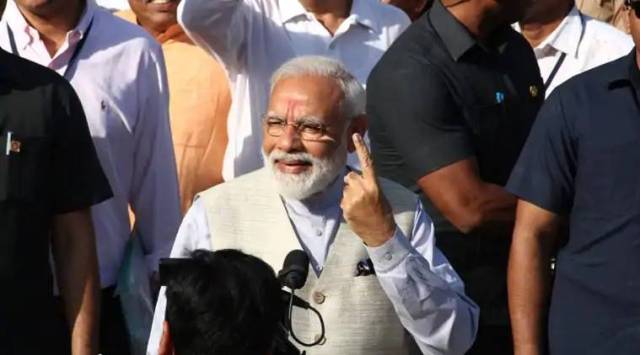
Bias can be recognised not only from what is visible, but also from what is missing. There is a crucial word missing from the rambling lead article in Time magazine, which purports to be an analysis of five years of Prime Minister Narendra Modi’s government. The missing word is “corruption”.
Any balanced report would have mentioned, even if it was only grudgingly, that one of the most important reasons for Narendra Modi’s victory in 2014 was the pervasive corruption that had become synonymous with Congress rule between 2004 and 2014, bolstered by smaller parties who picked up their share, through a voiceless Prime Minister Manmohan Singh who paid the price of his office with silence. You can rest assured that if there had been even an iota of credible evidence of corruption against PM Modi or his ministers, it would have dominated the diatribe that has been published under the guise of journalism by Time.
For the Indian voter in 2019, this is an exceptional achievement. Modi famously said, after being sworn in, “na khaoonga, na khaaney doonga” (“I will not take money; and I will let no one else take money”). He has delivered. This is a principal reason, along with many others, why “Modi! Modi! Modi!” has become a signature chant at the massive crowds that gather to hear him on the campaign trail in 2019. It is unsurprising that the magazine found neither the time nor the space to even mention the extraordinary turnout when PM Modi went to file his nomination at Varanasi. To do so would have interfered with a false narrative.
You also will find no mention of “Swachh Bharat” or “Jan Dhan” or “Mudra”, or indeed any of the economic welfare programmes that have transformed the lives of the poor. Nearly 50 years ago, Mrs Indira Gandhi won a remarkable victory in the general elections of 1971 with a simple but powerful slogan: “garibi hatao” (remove poverty). But Mrs Gandhi could not find the ideas or the mechanisms that would eliminate this dire tragedy. When Modi became PM, a quarter of India was still mired in harsh poverty. Modi did not bracket poverty into statistics. He viewed this historic curse through the lens of lived experience, largely because he had once been there himself. He devised a set of programmes that aimed to improve the daily lives of the poorest of the poor.
What observers seem to miss, or choose to miss, is that there has been absolutely no caste or communal bias in this colossal drive against poverty. Any opposition party during a general election is not kind towards government in its rhetoric. Why should it be? This is a free country. But no opposition party has accused the Modi government of discrimination on the basis of caste or creed in implementing its social empowerment policies.
It is one of the fantasies of the post-Independence Indian elite to believe that secularism has been one of its gifts; and without them India would never have been a secular state. Our syncretism is not manna from the privileged; it comes from the basic faith and philosophy of our land. Indeed, one of the reasons why communalism slowly became entrenched into political consciousness during the British era was because the vote then was limited to only the top 10 or 11 per cent. It is the poor, and indeed Indians of all shades and classes, who have protected the shared religious and cultural space.
Five years ago, parties campaigning for the Muslim vote ceaselessly proclaimed that if Modi came to power there would be riots every week. That has not happened. There have been a few terrible incidents of lynching, and they have been resolutely condemned. But you would need either a very short, or a very convenient, memory to forget the riots that took place in Uttar Pradesh during the UPA decade.
Democracy is, at its root, a popularity contest; it is a question of who gets more votes. As has been famously, there might be a hundred things wrong with democracy, but every other option is infinitely worse. Democracy is deeply rooted in India’s psyche. Our great generation of freedom fighters, led by Mahatma Gandhi, did not win freedom from the British in order to deny freedom to Indians. Narendra Modi is a product of democracy; for only democracy finds a map for the journey from a hut to the prime minister’s residence. The poor, and those who emerge from poverty, have a far greater vested interest in democracy than the elite, who will remain in power no matter what system prevails.
The proof of this pudding called elections lies in the voting. You can hear the voice of the people at Narendra Modi’s rallies.
This article first appeared in the print edition on May 11, 2019, under the title ‘Under cover of a story’. The writer is a national spokesperson of the BJP.